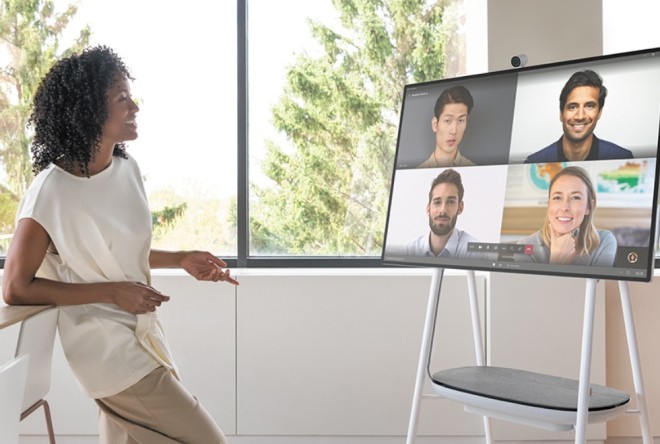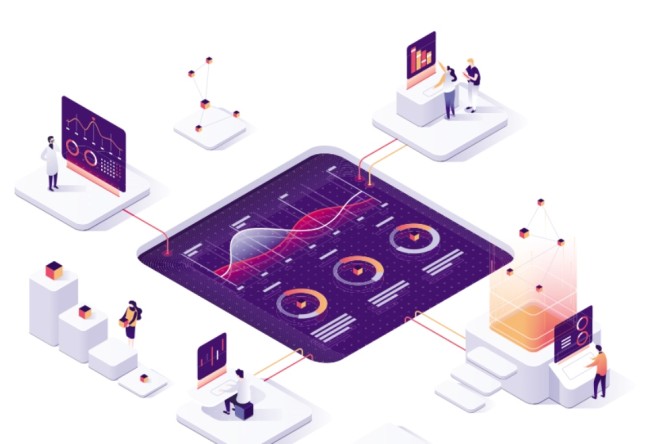While I was still at university, it was not that difficult to predict what roles I would like to take after my graduation, but this is now no longer the case. According to a recent IDC Asia/Pacific and Microsoft report, 79 per cent of jobs in Hong Kong will be transformed in the next three years, 60 per cent of which will be redeployed to higher-value roles, or reskilled to meet the needs of the digital age. In other words, we can no longer predict how different professions will evolve in the future.
Exponential growth in digital connectivity, devices and information is driving profound changes in the way we work across the globe. The ability to predict changes in periods of rapid technological transformation is never easy for organizations, governments, and every one of us. To ensure our skill sets remain as relevant as possible for future work requirements, we must understand the forces driving change, as well as their impact on people and the implications for the workplace.
A change in the business landscape
Photo Courtesy of Microsoft
As companies become truly global with employees and partners located across multiple locations, traditional boundaries of time, location, space and structure are quickly blurring. People are now more mobile than ever and business success depends on connecting people with each other and with the information and services they need from anywhere, at any time, via any device.
Work environments have also become much more fluid, flexible and less defined. More and more organizations are taking cues from coworking models to enable their employees to work wherever they want, providing them with access to digital collaboration and virtual communication tools that transcend geographical boundaries.
The very concept of one’s work-life balance has morphed into work-life integration as people discover new ways to work, and find that working times have become more dynamic and less conventional and defined. Driven in large part by changing lifestyles, this can only be possible due to the rapid development of technologies that enable seamless communication and information-sharing that not only work for individuals and groups within a company but across teams that may span multiple organizations and communities.
Exponential growth has been recorded in terms of the number of IOT (Internet of Things) devices surrounding us. These devices are collecting a massive amount of data and it is a matter of whether we are seeing data as our personal assets or liabilities, and whether we can make good use of the insights generated from the data to help us in making objective judgement, justifying our investments. Advances in artificial intelligence (AI), data analytics and machine learning are changing the future of work with unprecedented speed and intensity, reinventing our economies and forging new ways of working to an extent which is difficult to predict and imagine.
What can businesses and employees do to prepare for the future of work?
These trends are inevitable yet essential because they highlight not only the challenges we will face in the coming years but also the opportunities ahead to shape a better future workplace. The question is, “Are we ready?” I would say that to enable us to be future ready, there are three key steps we should action right now.
First and foremost, we need a mindset change. We should embrace a growth mindset, which believes potential can be nurtured and is not pre-determined. This means anyone can change, learn and grow. There needs to be a cultural transformation within an organization from a “know-it-all” culture to a “learn-it-all” culture. It is essential for business leaders, employees and everyone else to have a growth mindset and always remain self-critical. Self-reflection is essential to keep us going. Graduation is never the end of learning. We all need to become lifelong learners who embrace every opportunity to cultivate new skills.
Secondly, we need to dial up our ability and readiness to constantly adapt to change. As Hong Kong and businesses around the world embark on the digital transformation journey, new skills such as AI and data analytics are essential for employees to thrive in the future of work, regardless of their profession. AI is everywhere; it is now being used in the medical field to helping pre-screening. It is also helping logistics companies to predict and more accurately plan their shipment routes, and leveraging location intelligence for shopping mall promotion programs etc. We will all need to think about how we can upskill and reskill ourselves to meet future talent needs and stay relevant.
To adapt to constant change, companies are also leveraging communications tools and cloud technology to enable employees to communicate and collaborate in teams wherever they are, whenever they need. This ability to virtually connect with one another, and the flexibility to conduct work anytime anywhere, is also helping employees when it comes to work-life integration. I personally enjoy this flexibility a lot here at Microsoft. Project teams within Microsoft come in all different shapes and sizes and across various geographic locations. Through leveraging Microsoft Teams, our colleagues are connected across the globe without any workplace boundaries. And this includes partners, vendors and external parties as well.
Thirdly, in addition to traditional learning and development, such as on-the-job training and certification programs, companies will need to explore peer mentorships, open knowledge sharing, on-demand learning, and other new approaches to ensure their employees can have a broader exposure to industry knowledge, policies and regulations.
To thrive in a world that is changing at such breath-taking speed, we will need to innovatively reinvent many aspects of work and work culture, challenging the status quo while equipping ourselves with new skills. In future, businesses will thrive only if they can harness the power of AI and machine learning to transform the growing mass of data into insights and action. To succeed in this workplace transformation, it is critical to recognize and maximize the potential of emerging technology. It is through new technology and our innovative thoughts that new skills and capabilities are developed that improve productivity and enhance collaboration and ensure that individuals and businesses can be future-ready.
Photo Courtesy of Microsoft



